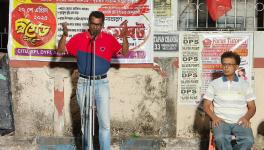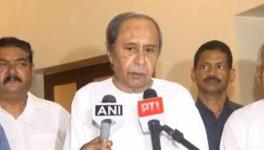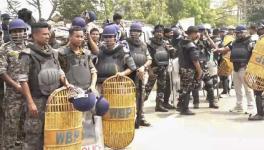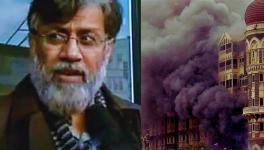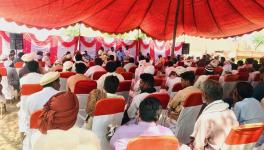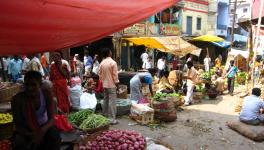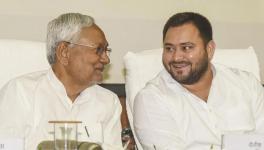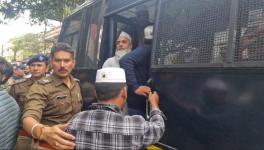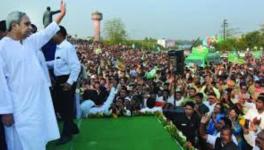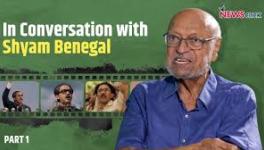'Your Media Has Wounded the Valley': Kashmir Youth Speak Out
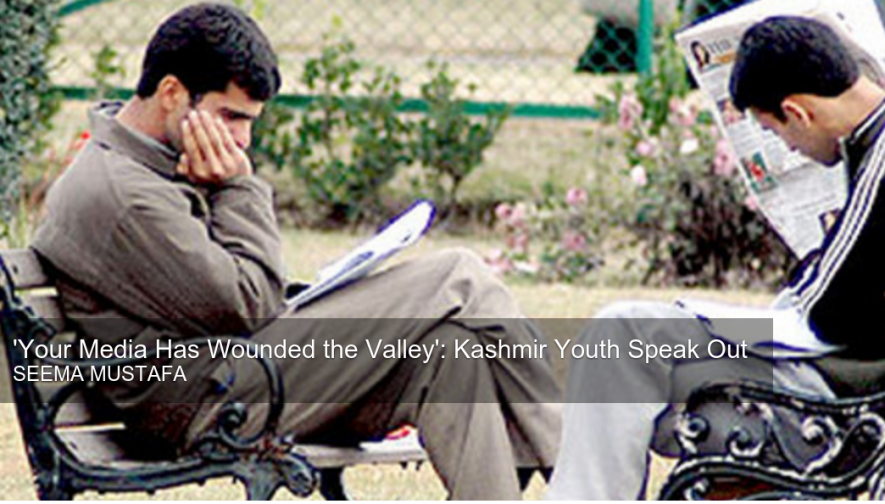
Kashmir Youths Speak out.
SRINAGAR: “You people are liars, you have been spreading lies, you have portrayed all of us as terrorists, you are responsible today for what is happening.” The ‘you’ is a reference to the media. The words said by a young Kashmiri entrepreneur in a cold, sober tone made us cringe. For even though we wanted to believe we were not included in the generalisation, we felt responsible for that section of the media that probably even today has little idea of the damage it has done to Kashmir.
Youth after youth opened their conversation with us -- four journalists from Delhi---with similar comments. “You people have tried to destroy us”; “You people have no ethics”; “You people have spread lies and lies about us”; “You people have shown us as monsters”; And they are right, that is exactly what we seem to have done.
The anger in Kashmir, particularly amongst the young,is now deep rooted. As is an accompanying depression, where the smiles, literally, have disappeared from their faces. And this is not an exaggeration, in fact an understatement. The present in Kashmir does not exist, and the hope for a better future has all but disappeared. In some this turns into anger, in others into despondency but in all the young people of Kashmir it generates deep resentment and alienation.
It does not help when they switch on the television sets and see famous anchors, and supposedly respected experts, define Kashmiris as ‘terrorists’. A stereotype that hurts as much as it angers. The reportage, the youth across the board said, brands them as stone pelters, as extremists, radicals, potential Islamic State recruits, Pakistani agents. “Do you see that here, tell me is that how we appear to you,” they ask. If not, then why does the media insist we are what we are not?
As they speak, one after the other with the passion of youth, with political savviness, with intelligent arguments one looks at them and sees only an intense journalist, a writer, an activist, a student, a lawyer all struggling to be heard. And more than that, to be understood.
Intelligence men swarm the hotel where we are staying. In fact at a meeting with journalists at least five of the Special Branch men come inside and sit in the hall. Someone points them out to us, and later after the meeting we have a friendly chat with them where they confirm they belong to the intelligence. They are only following instructions from the top, they cannot be blamed. But their presence has ensured that one will not identify any one person, and that in this report I will change the names of those I quote, as young people are the most vulnerable targets in Kashmir today.
Some quotes:
Rabi: There is a cult of death...The system is unresponsive, we cannot vent our anger through the system as it is not for us. So many turn to the streets to be heard.
Ahmad: the student picks up a stone as it brings instant recognition, a reaction from a system that does not recognise him otherwise. It gets him almost celebrity status today in society. He feels a sense of worth that has been taken away from him by the raids in his home, or his relatives homes, arrests, harassment, daily humiliation on the streets as he is frisked and searched.
Khan: The BJP thinks we are mushrooms. Keep us in the dark and feed us shit.
Wani: I went for a job in Goa but was rejected when they heard I was from Kashmir. I did not have a chance.
Ali: Delhi had to impose a leadership on the protests. So they brought in Hafiz Sayeed and Pakistan. They don’t want to recognise the fact that there is anger amongst the youth, that the protests are spontaneous.
In almost a chorus: The biggest fault is yours, of the media. You have branded us as terrorists, you have not given us a chance. For you all Kashmiris are the same, you do not recognise our aspirations, you just damn us as extremists, as radicals, as violent people without a thought in our heads.
This has led to deep alienation. As news television channels are watched more intensely by the youth here, electricity permitting, than in other parts of the country as there is little else for the young people to do in the evenings. There is no movie hall, they cannot converge and speak (a little movement in our hotel had the intelligence chaps almost setting up a post), they all feel the pressure of constant suspicion, the frisking, the questioning, the monitoring.
And when they are hoping that their voices will be heard, and their sentiments understood they find anchors in Mumbai and Delhi loudly branding them as terrorists and extremists. These are young people with aspirations similar to those living in the cities of other states, except for the crucial difference,that they live in conflict conditions that places death and strife at their doorsteps, knocking to enter at any point in time.
Kashmir’s youth were drawn to journalism,judging from the number of applications that media houses receive. For the younger generation, the realisation that journalism no longer represented the truth came through the ‘national’ media’s coverage of the 2010 cycle of violence in which 124 young people were killed in about three months. It was further strenghened during the floods, when the television anchors arrived to praise the Army at a time when most of the common folk were being saved from the rising waters by the youth, at risk to their own lives. This was not even acknowleded at the time.
But the worst has been these four months, and the cacophony of television coverage where at least three channels if not more insisted on portraying Kashmiris as a national security threat. The coverage that had many senior journalists in Delhi writing about the complete absence of accountability and media responsibility, hit the Valley hard. And as a senior political leader pointed out, the youth found themselves being pilloried every evening instead of being understood.
This, he said, has created deep alienation. The youth here found that no one was reaching out to them, not even the civil society that they saw on television, and instead they were all branded as exrremists,” he said. If the media had been factual, had been responsive and sensitive to a conflict zone, it would have gone a long way in Kashmir, he added.
The anger has spread, into the villages, in the towns. Many stop to point out that the decision to sit for the examinations has little to do with normalcy, and more to do with parents worry about their wards losing a year or more if the process is halted. “Your television sees it as a sign that all is normal, we see it as a necessity and know that nothing is normal,” an articulate young man said.
So where now? There is unanimity here. There needs to be a dialogue, this must start otherwise those who are pelting stones today might be pushed to pick up the gun is the consensus in the room. Although there are some who feel it is too late, there is nothing to talk about now. “We will fight for our freedom now, nothing less is acceptable.”
The Kashmiri youth are certainly not the monolithic entity that an ignorant media in Delhi tends to portray them as. Some are active stone pelters, defiant and almost suicidal. They go up to the armed policeman and defy him to shoot them, by making gestures, and mocking them. They are the very young, cherishing a romanticised concept of intifada in their heads. They are not radicalised, perhaps quite the opposite with no ideology except a notion.
Some are passive stone pelters. Angry, but not going out onto the streets and at the same time supportive of those who are there in the forefront as it were. A young doctor bursts into a rant of emotion, making little sense, but speaking almost ceaselessly about his angst, his experiences, and his worry about the future. “I do not want my child to be killed, or to be blinded by pellets,” he repeats, clearly haunted by the hundreds of young people ---3 years onwards---hit by lethal pellets in their faces, and eyes who he has treated.
Some just want it all to end. But have no idea how. They are very critical of the government, of the PDP in particular for betraying the promises but also question the separatists. They are not for India, no one today in Kashmir is, but they are not for Pakistan. They want freedom, some actively, some as a concept to be worked out, but for the moment they want a dialogue and through it peace and as a young lawyer said, “peace with rights, justice, dignity.”
(Cover photograph Courtesy Kashmir Observer)
Disclaimer: The views expressed here are the author's personal views, and do not necessarily represent the views of Newsclick
Get the latest reports & analysis with people's perspective on Protests, movements & deep analytical videos, discussions of the current affairs in your Telegram app. Subscribe to NewsClick's Telegram channel & get Real-Time updates on stories, as they get published on our website.









